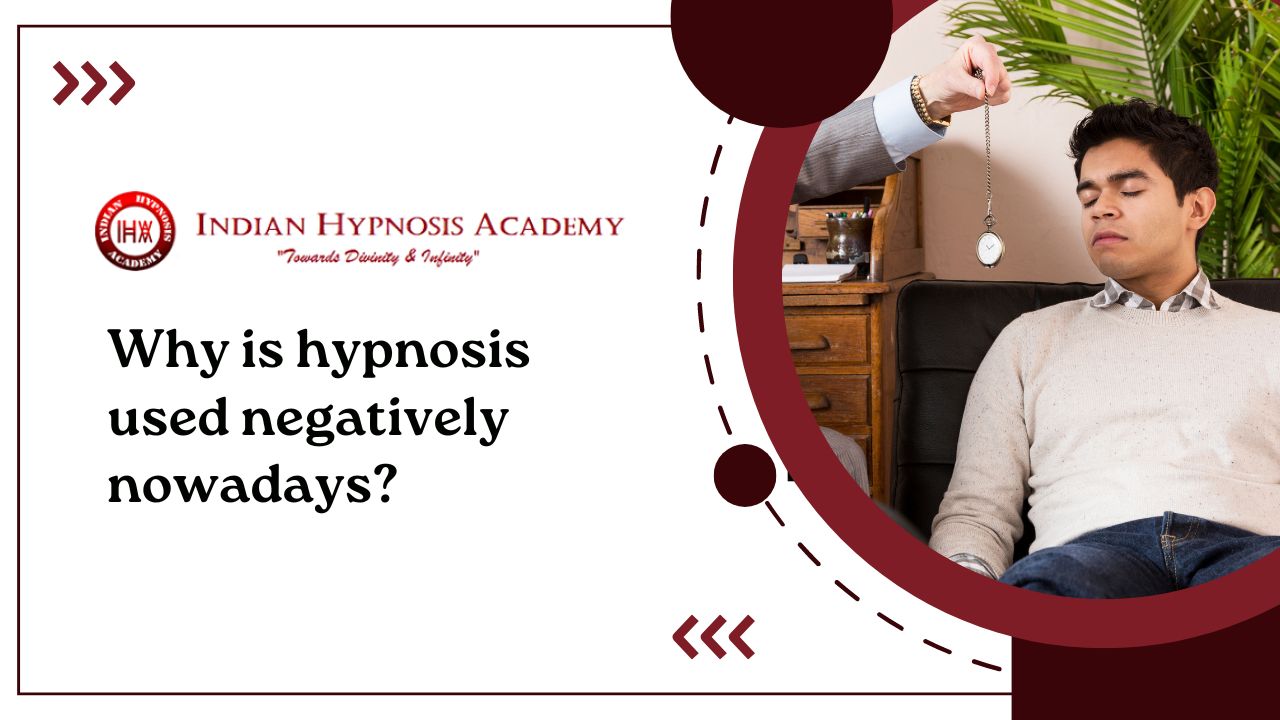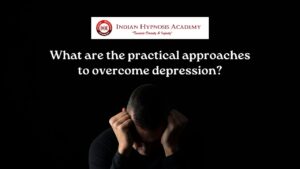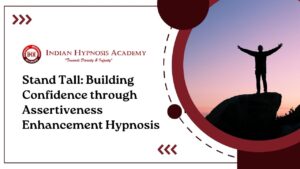Introduction to hypnosis
Step right up and prepare to dive into the mysterious world of hypnosis! From stage acts to therapy sessions, this age-old practice has sparked curiosity and skepticism alike. Let’s unravel the misconceptions surrounding hypnosis and discover why it’s often misunderstood in today’s society. Are you ready to separate fact from fiction? Let’s get started!
Common misconceptions about hypnosis
When it comes to hypnosis, many misconceptions swirl around this intriguing practice. One common misconception is that individuals under hypnosis lose control of their actions and thoughts. In reality, people in a hypnotic state are still aware of what’s happening and can’t be made to do anything against their will.
Another myth surrounding hypnosis is that only weak-minded or gullible people can be hypnotized. This couldn’t be further from the truth as anyone with an open mind and willingness to participate can experience the benefits of hypnosis. Additionally, some believe that hypnosis is a form of mind control used for nefarious purposes – but in actuality, it’s a therapeutic technique aimed at helping individuals tap into their subconscious minds for positive change.
Understanding the truth behind these common misconceptions about hypnosis can lead to a more informed perspective on its potential benefits for personal growth and mental well-being.
The history of hypnosis and its uses
Let’s take a journey back in time to explore the intriguing history of hypnosis. Dating back centuries, ancient civilizations used trance-like states for healing and spiritual rituals. However, it wasn’t until the 18th century that modern hypnosis began to take shape.
One of the pioneers in this field was Franz Mesmer, whose work laid the foundation for what we now know as hypnotherapy. Mesmer believed in the power of suggestion and its ability to influence behavior and improve health outcomes.
Throughout history, hypnosis has been utilized for various purposes such as pain management, stress reduction, and overcoming phobias. Its potential applications are vast and continue to evolve with ongoing research and advancements in psychology.
Today, hypnosis is recognized as a valuable tool for personal development and mental wellness. By tapping into the subconscious mind, individuals can harness their inner strength to make positive changes in their lives.
How the media has portrayed hypnosis
The media has often sensationalized hypnosis, depicting it as a form of mind control or manipulation. Movies and TV shows tend to portray hypnosis as something mysterious and dangerous, leading to misconceptions among the general public.
These exaggerated representations have contributed to the negative stigma surrounding hypnosis. People are wary of its use due to fear of losing control or being influenced against their will.
Additionally, news stories highlighting hypnotists using their skills for unethical purposes have further tainted the image of hypnosis in society. These instances overshadow the legitimate therapeutic benefits that hypnotherapy can offer.
By perpetuating these misleading stereotypes, the media has hindered the acceptance and understanding of hypnosis as a valuable tool for personal development and mental health improvement.
Negative effects of media portrayal on public perception
Imagine turning on the TV or scrolling through social media only to see hypnosis depicted as a tool for mind control and manipulation. The sensationalized stories and exaggerated portrayals in movies and shows have shaped how people view this therapeutic technique.
The media often focuses on the entertainment aspect of hypnosis, showcasing stage performances where individuals seem to lose control of their actions. These flashy displays overshadow the real purpose of hypnotherapy – to help individuals overcome challenges and improve their well-being.
Unfortunately, these distorted representations have led to widespread misconceptions about hypnosis, causing many to fear it or dismiss its potential benefits. People may hesitate to seek out legitimate hypnotherapy services due to these negative associations perpetuated by the media.
It’s crucial for us to question the accuracy of what we see in the media regarding hypnosis and instead educate ourselves on its true nature and uses. By dispelling myths and highlighting its positive impact, we can encourage a more informed perspective on this valuable therapeutic tool.
Debunking myths and promoting the use of hypnosis for personal growth
For many, hypnosis conjures images of a mysterious and manipulative practice used for entertainment or mind control. However, the reality is far from these misconceptions. Hypnosis is a therapeutic technique that can be utilized to promote personal growth and self-improvement.
By debunking the myths surrounding hypnosis, individuals can open themselves up to its potential benefits. Contrary to popular belief, hypnosis is not about losing control or being under someone else’s power; it is a collaborative process between the hypnotist and the individual seeking help.
Through hypnosis, people can tap into their subconscious minds to address deep-seated issues, break harmful patterns, and unlock their full potential. It can be a powerful tool for enhancing self-awareness, improving confidence, reducing stress and anxiety, overcoming phobias, and even aiding in weight loss or smoking cessation.
Embracing hypnosis as a legitimate form of therapy empowers individuals to take control of their lives and make positive changes from within.
Misconceptions and Myths About Hypnosis
Hypnosis has long been shrouded in mystery and misconceptions, often perpetuated by movies and TV shows. The idea of mind control or manipulation is a common myth associated with hypnosis, when in reality it’s about tapping into one’s own subconscious thoughts. Another misconception is that only weak-minded individuals can be hypnotized, but the truth is that anyone with an open mind can benefit from hypnotherapy.
Some believe that under hypnosis, people can be made to do things against their will. This couldn’t be further from the truth; individuals under hypnosis are fully aware and in control of their actions. Additionally, there’s a misconception that hypnosis is a form of magic or supernatural power, but it’s actually a scientifically proven technique used for therapeutic purposes.
By debunking these myths and misunderstandings surrounding hypnosis, we can start to appreciate its potential for personal growth and positive change.
Ethical Use of Hypnosis
When it comes to hypnosis, ethical considerations are paramount. It’s crucial for practitioners to prioritize the well-being and autonomy of their clients above all else. This means obtaining informed consent before any hypnotic session begins, ensuring that the individual understands what will take place during the process.
Respecting boundaries is another key aspect of ethical hypnosis practice. Practitioners should never use hypnosis to manipulate or control individuals against their will. Instead, the focus should be on empowering clients to make positive changes in their lives autonomously.
Confidentiality is also vital in ethical hypnosis practice. Clients must feel safe and secure knowing that their personal information and experiences shared during sessions are kept confidential.
Furthermore, practitioners should continuously strive to enhance their skills and knowledge through ongoing education and training in order to provide the best possible care for their clients.
Benefits of Hypnotherapy for Mental Health
Hypnotherapy is a powerful tool for improving mental health. It can help individuals manage stress, anxiety, and even overcome phobias. Through hypnosis, a person can access their subconscious mind to address unresolved issues and reframe negative thought patterns.
One of the key benefits of hypnotherapy is its ability to promote relaxation and reduce feelings of tension. By inducing a state of deep relaxation, hypnosis allows individuals to let go of worries and calm their minds.
Moreover, hypnotherapy can be effective in building self-esteem and confidence. By working with a trained therapist, clients can uncover limiting beliefs that hold them back and replace them with empowering thoughts.
Additionally, hypnosis can aid in improving sleep quality by addressing underlying emotional or psychological factors contributing to insomnia or other sleep disorders. The soothing nature of hypnotherapy sessions can also help individuals achieve better rest.
The benefits of hypnotherapy for mental health are vast and worth exploring for those seeking alternative methods for personal growth and well-being.
Other potential benefits of hypnotherapy for mental health include:
- Stress Reduction: Hypnosis can help individuals reduce stress by promoting relaxation and teaching them techniques to manage stressful situations.
- Anxiety Management: Hypnotherapy can be used to treat anxiety disorders, such as generalized anxiety disorder, social anxiety disorder, and panic disorder.
- Overcoming Phobias: Through hypnosis, individuals can explore and address the root causes of their phobias in a safe and controlled environment. This allows them to overcome their fears and live more freely.
- Improved Coping Skills: Hypnotherapy can equip individuals with tools to better cope with difficult emotions or situations, enabling them to handle challenges more effectively.
- Pain Management: Hypnosis has been shown to be effective in managing chronic pain conditions, helping individuals reduce their reliance on medications and improve their overall quality of life.
- Behavioral Changes: By accessing the subconscious mind, hypnotherapy can help clients identify and address unhealthy behaviors or habits that may be contributing to mental health concerns.
- Trauma Resolution: Through guided imagery and visualization techniques, hypnosis can help individuals process traumatic experiences and move towards healing.
In conclusion, hypnotherapy is a versatile tool that can benefit mental health in various ways. It can help individuals manage stress, anxiety, phobias, and other mental health concerns, leading to improved overall well-being. However, it is essential to work with a trained and licensed hypnotherapist for the best results.
Conclusion
Hypnosis has unfortunately been stigmatized and misrepresented in the media, leading to negative connotations. However, it is essential to separate fact from fiction and recognize the potential benefits that hypnotherapy can offer for personal growth and mental health. By debunking myths and promoting ethical use, we can shift the narrative surrounding hypnosis towards a more positive light. It’s time to embrace the power of hypnosis as a tool for empowerment and well-being in our modern world.




